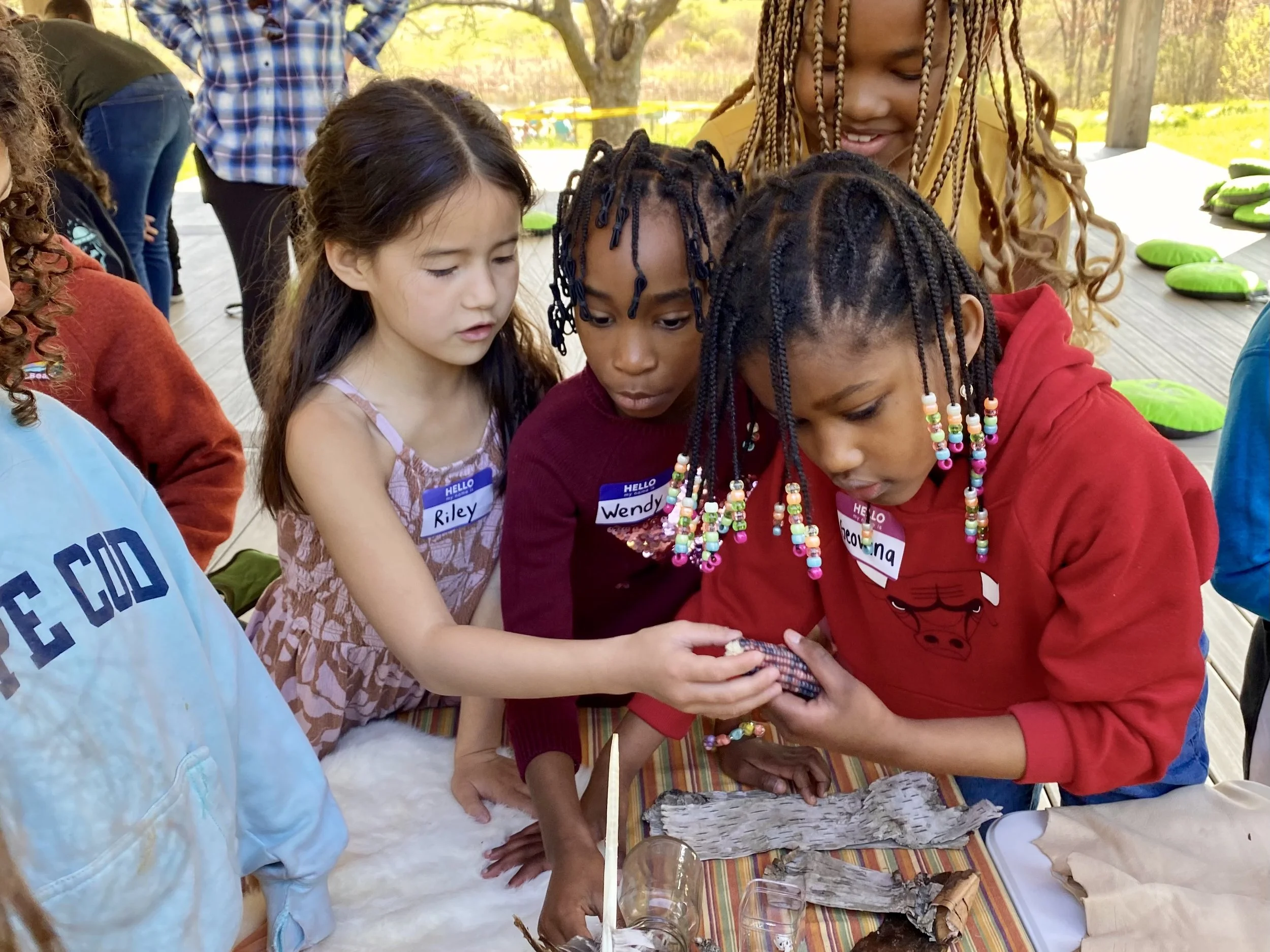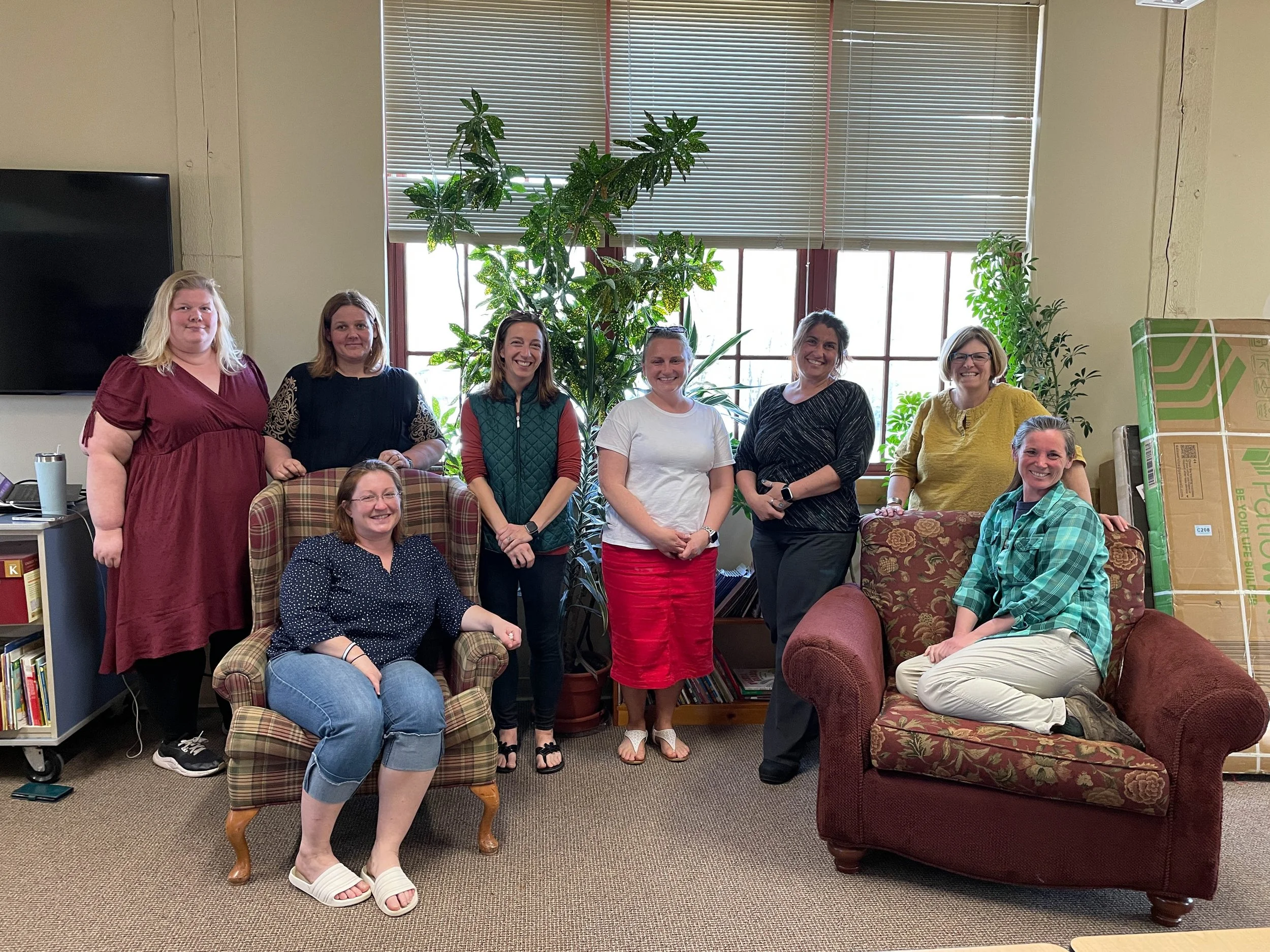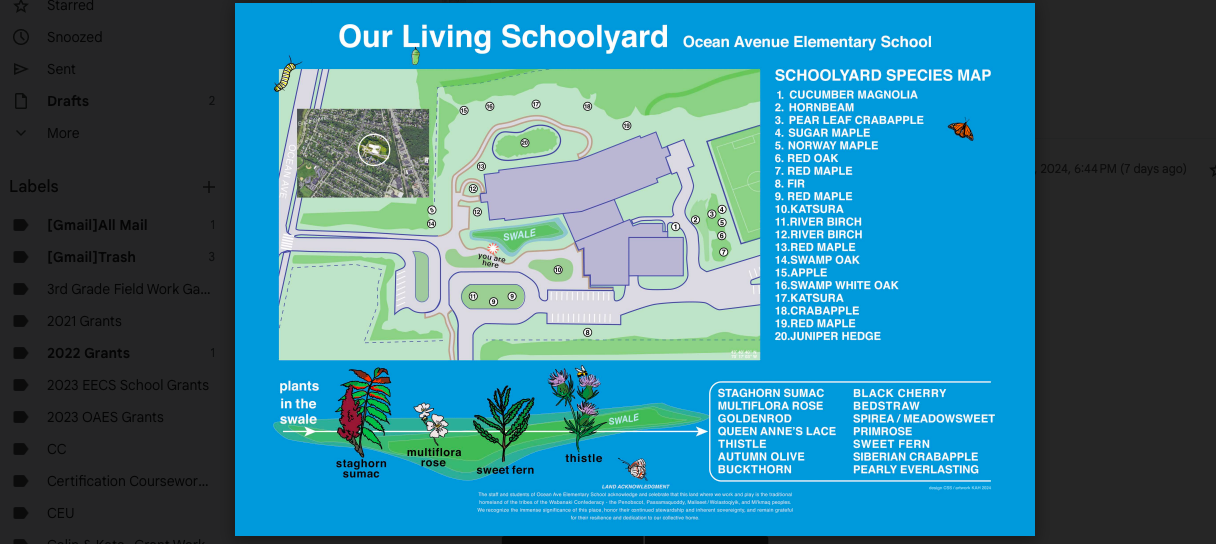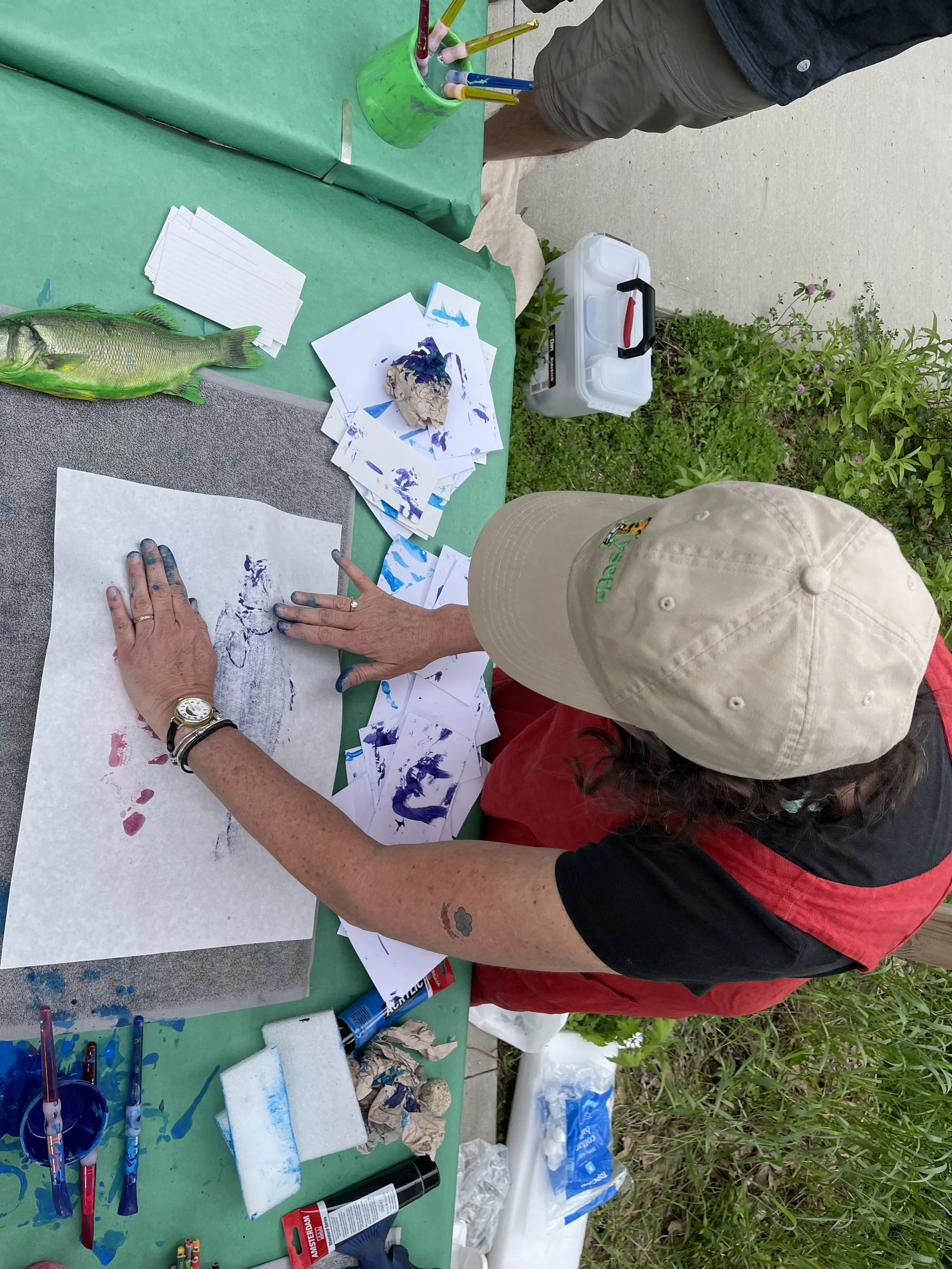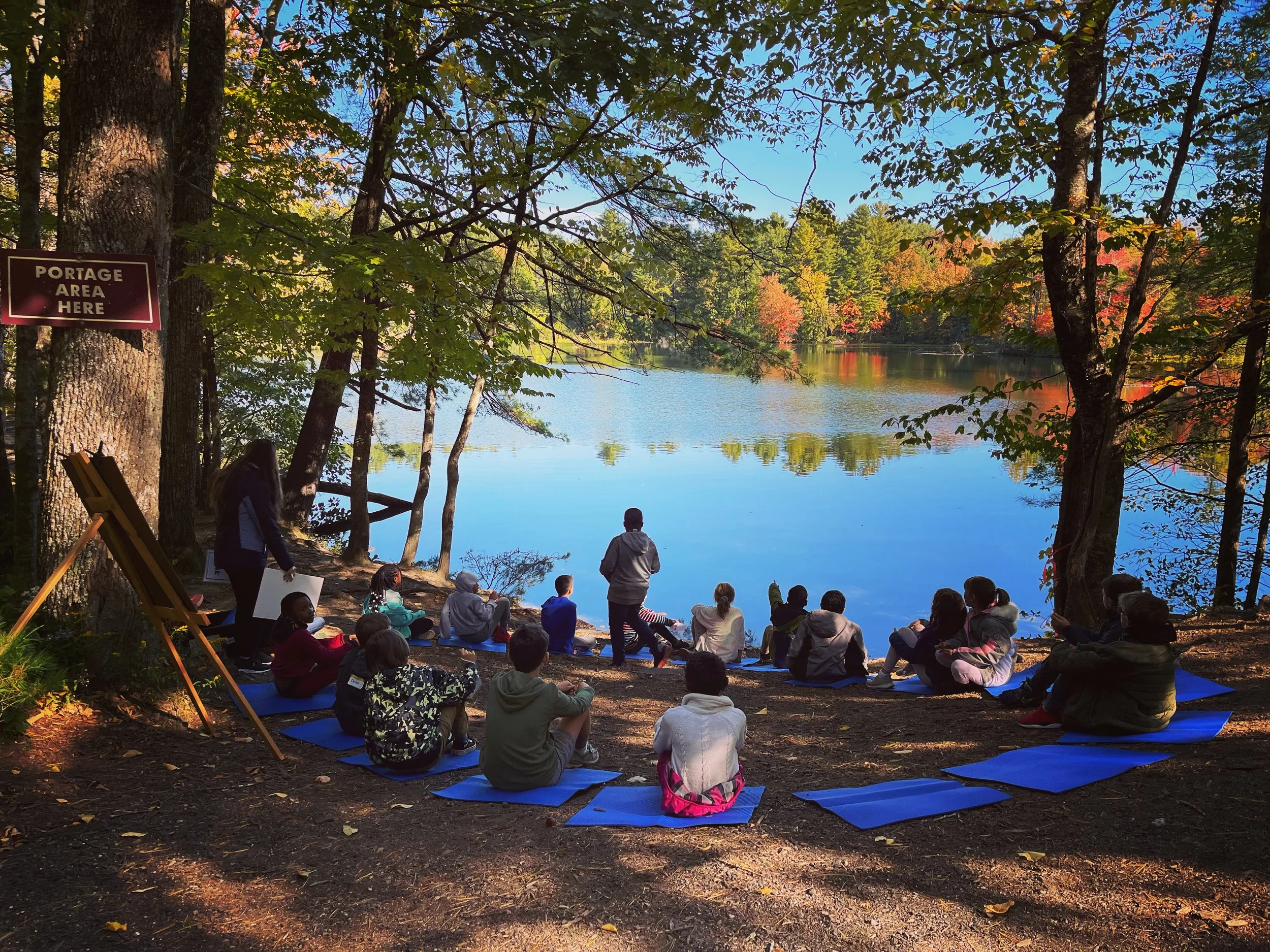Expanding Access to Wabanaki Studies
Wabanaki Studies is the #1 topic that Maine environmental educators say they need more support to teach to their students.
Source: 2022 Census for Community-Based Environmental Learning
Regsiter now for Spring 2025 Wabanaki Studies Workshops!
York and Bangor registration is closed. Presque Isle registration closed Monday March 31.
At MEEA, we strive to expand access to Wabanaki Studies at public schools and environmental education organizations. Through providing funding, workshop development and partnership, we connect Wabanaki educators with the wider environmental education community to build long lasting relationships so that all Maine students and educators can access Indigenous knowledge inside and outside the classroom.
The Wabanaki Nations’ traditional ecological knowledge (TEK) continues to expand and challenge the field of environmental education to approach teaching about the natural world in a more holistic, interconnected, and interdisciplinary way. Wabanaki Studies promotes Maine students to have a deeper connection to the environment in which they live and learn; and to understand the history and culture of the people who have stewarded these lands for time immemorial.
Follow Wabanaki Studies Education on Instagram and Facebook for Wabanaki Studies offerings and opportunities. And check out the Maine Dept. of Education’s Wabanaki Studies MOOSE Modules, created in collaboration with Lolar, educators, and Wabanaki advisors.
Wabanaki Studies Professional Development Workshops
Spring 2025 Workshop cohorts March - May — Register now.
Bangor, York registration closed. Presque Isle registration open until March 31.
FREE 3-part in-person and online workshop series for educators to get training and support with Wabanaki Studies resources and curricula. Build community with other educators to support one another in implementing Wabanaki Studies!
Register now for Wabanaki studies professional development workshop series starting in March! 3 cohorts in Bangor, Presque Isle, and York, Maine. Click here to register.
You'll join a cohort of educators from your region to participate in 3 interactive workshops (2 online, 1 in-person) and support one another as you integrate Wabanaki studies into your education work. Facilitated by Panawahpskek citizens Brianne Lolar (Maine DOE Wabanaki Studies Specialist) and Kaya Lolar (MEEA Policy and Wabanaki Studies Coordinator)
In Spring 2024, Panawahpskek citizens, Brianne Lolar (Wabanaki Studies Specialist) and Kaya Lolar, facilitated a pilot Wabanaki Studies professional development workshop series with the support of MEEA.
120 classroom educators attended the five in-person workshops in Spring 2024 that took place in communities across the state, including Ashland, Machias, Hinckley, and Falmouth.
This material represents a continuing collaborative effort between the Wabanaki Nations, Indigenous and non-Indigenous educators, districts, and other organizations.
Decolonizing the Botanical Lexicon:
Restorative Ecology from an Indigenous Perspective
Hosted by Kathy Pollard and Ann Pollard-Ranco (Penobscot citizen) of Know Your Land Consulting | At the 2024 MEEA Annual Conference, mother daughter team Kathy Pollard and Ann Pollard-Ranco presented a workshop about the language we use to describe plants — “alien, native, naturalized, invasive, colonizer, pioneer” — terms steeped in innuendo that employ a western culture-centric binary system of judgment about the natural world and who belongs. Kathy and Ann believe that nature should be perceived by children as a place of welcome, where we are all are accepted— because nature does not discriminate! Through this workshop, together, we can begin building a different vocabulary for use in restorative ecology projects that is less binary and more sensitive to the potential implications that reach beyond the science classroom.
Looking for funding for your Wabanaki Studies project?
MEEA’s Mini Grants for Outdoor Learning provide up to $1,500 for outdoor learning projects, including Wabanaki studies. Applications are currently closed and re-open September 2025.
MEEA’s Mini Grants for Outdoor Learning have funded numerous Wabanaki Studies outdoor and experiential learning projects over the program’s four years. Check out photos from former grantees’ projects above and learn more about the mini grants program by clicking the link below.
Wabanaki Studies Outdoor Education Projects
Project-based Learning Modules by Grade Level
Wabanaki educators and community members have created a multitude of Wabanaki Studies resources for all grade levels and subject areas. MEEA is committed to ensuring teachers utilize them in their classrooms to meet the Wabanaki Studies requirements. Below are modules available for use through the Maine Dept. of Education’s MOOSE Wabanaki Studies Learning Progression.
Click the plus (+) sign to expand the Grade Level MOOSE Module and learn more about each lesson.
-
View PreK-2 MOOSE Module here. This module introduces the five Wabanaki Nations and their languages. Learners will gather a better understanding of the people that lived here first and that they are still a strong, vibrant part of what is now called Maine.
-
View Grade 3-5 MOOSE Module here. This module explores writers, storytellers, basket makers, and other artists that are using their voice to bring awareness to environmental issues that the Wabanaki Nations face today. Students will be empowered with the tools they gain to use their own voice to encourage others to better care for the spaces around them.
-
View Grades 6-8 MOOSE Module here. In this module learners will increase their own awareness of becoming a steward of our water while conserving and preserving our planet’s water supply, especially in what is now called Maine.
-
View Grades 9-12 MOOSE Module here.
"How can I partner with Wabanaki conservationists to work towards the healing of our environment? How are some of these issues negatively impacting what is now called Maine and the Wabanaki way of life?"As you embark upon this journey, you will reflect on your learnings about the past, and present issues of environmental harm in what we all call home. Through poetry, art, and journaling you will express your voice as a way to honor our environment. Reflecting on your learning journey throughout the module, your voice can continue to be heard when you reach out to legislators, nonprofit groups, or other groups calling others to action. In this way, you will become allied with the Wabanaki conservationists you learned about. By reaching out to stakeholders, you will have the opportunity to impact our state as informed and engaged changemakers.
-
View Grades 9-12 MOOSE Module here.
What does community mean to you? How can communities strengthen us? How can communities strengthen others communities? How we learn from other communities? What is the importance of community in Wabanaki Nations in today's world?In this module, you will learn how the Wabanaki people holistically approach their community, self, and environment, and how this approach can benefit all. Hopefully, this journey will inspire and empower you to create positive change.
As you explore this module, you will focus on answering the questions, "How has my exploration of Wabanaki communities changed my perception of the world I live in?" and "How can I use this new knowledge to help others?"
-
View Grades 9-12 MOOSE Module here.
In this module, you will spend some time researching Wabanaki culture to deepen your understanding of this interconnected, yet mutually beautiful, relationship between place and identity. Much of who the Wabanaki are has been shaped by where they live. This module will have you exploring geographic features, their names, and their connection to the Wabanaki and Mother Earth -- all of this to impact future generations and their understanding of identity and place! -
View Grades 9-12 MOOSE Module here.
The Wabanaki, the People of the Dawn, were born when Gluskabe shot an arrow into an ash tree and the people stepped forth from the trunk. Gluskabe then taught them how to weave strips of wood from the tree into baskets. The Wabanaki were born from, and into, this fine art.In this module, we’ll examine the artworks of five Wabanaki artists: Gina Brooks, Wolastiqiyik (Maliseet) painter and illustrator; Jeremy Frey, Peskotomuhkati (Passamaquoddy) basketmaker; Tim Shay, Panawahpskek (Penobscot) sculptor; Alan Syliboy, Mi'kmaq painter and animator; and Mali Obomsawin, Abenaki musician. These five artists draw on traditions and imagery from Wabanaki culture to create their art.
After getting to know the five artists and their artworks, you will branch out to discover more hidden talents in the Wabanaki art world and bring awareness to their beautiful and powerful art.
Wabanaki Studies Project Ideas
Below are suggestions from Brianne Lolar, Wabanaki Studies Specialist and Panawahpskek citizen.
Wabanaki Studies Interdisciplinary Starter Kits: In kits: binder (educators guide, etc.), hands on materials, posters, laminated info cards, books. Online: videos, educators guides, printed materials
Maple syrup unit: with interdisciplinary curriculum
Collaborate with Wabanaki language sharer: Create signage for school gardens, outdoor classrooms, etc.
Outdoor games and activities: Purchase snow snakes to use with a Wabanaki advisor in the winter with an interdisciplinary curriculum.
Three Sisters Garden: Plant a school garden with these interdisciplinary curriculum options.
First Blade of Sweetgrass: Create a story walk with your students using the book First Blaid of Sweetgrass.
Invite a Wabanaki advisor in for nature poetry exploration
Plants: Vital Members of the Wabanaki Community: Make a medicine path in collaboration with interdisciplinary learning.
Journey through the Dawnland: This scavenger hunt invites students to visit locations across Wabanaki homelands and answer questions to learn more about Wabanaki history and culture.
Wabanaki Studies In Nature: Nature journaling prompts and exercises.
Ash Tree Protection Across Wabanaki Homelands: Use in learning about the Emerald Ash Borer
Workshop Participant Testimonials
“My intention to attend the Wabanaki Studies workshop was for the purpose of supporting those instructing Indigenous students. The importance of cultural sensitivity and respect should be impressed on all those looking towards a career in education. The class exceeded my expectations. I found the instructors approachable and sincerely focused on sharing their extensive knowledge. As part of support staff working with young tribal members, my comfort level has been strengthened.”
-Amy Hodgdon, one-on-one Ed Tech III, Washington Academy HS
“The Wabanaki Studies workshop was a gift that we have all needed for a very long time. The schools I work with are extremely grateful for the vast amount of information as they integrate and teach Wabanaki Studies curriculum. The work that went into the development of the huge body of resources is both impressive and incredibly helpful for us all. Thank you, Brianne Lolar, the Wabanaki Studies team, and Wabanaki team of Advisors for your leadership and thank you, MEEA for sponsoring the workshop.”
-Anne Stires, Educational Consultant
Affiliate Faculty, Antioch University
Policy & Advocacy for Wabanaki Studies and Tribal Sovereignty
Significant strides were made in 2001 by signing into law the Wabanaki Studies LD 291 mandate, which requires public schools to teach Wabanaki Studies. However, over twenty years later, educational gaps have left the vision of LD 291 largely unaccomplished.
A 2022 report by the Abbe Museum, Maine ACLU, Maine Indian Tribal-State Commission, and Wabanaki Alliance found school districts have minimally incorporated Wabanaki Studies in their curriculum. Similarly, the Teach ME Outside collaborative has found a similar insufficiency in Wabanaki Studies educator training and professional development. These results indicated the number one requested topical area of support for nearly 1,000 informal and formal educators surveyed in Maine is Wabanaki Studies.
A recent shift in collective perspective on the importance of Indigenous issues has compelled other organizations and institutions statewide to mobilize Wabanaki Studies resources. This includes in recent years several pieces of legislation that would invest more capacity into Wabanaki Studies through creating a Wabanaki Studies Commission, periodic surveying for how the subject is manifesting in school districts, and creating funding for curricular development. MEEA has advocated for these bills, engaged hundreds of youth in legislative education, and is excited to support future efforts mobilizing folks around Wabanaki Studies. We do a lot of this advocacy through the Wabanaki Alliance, which we are grateful to be a member of. To learn more about the alliance, click the button below.






